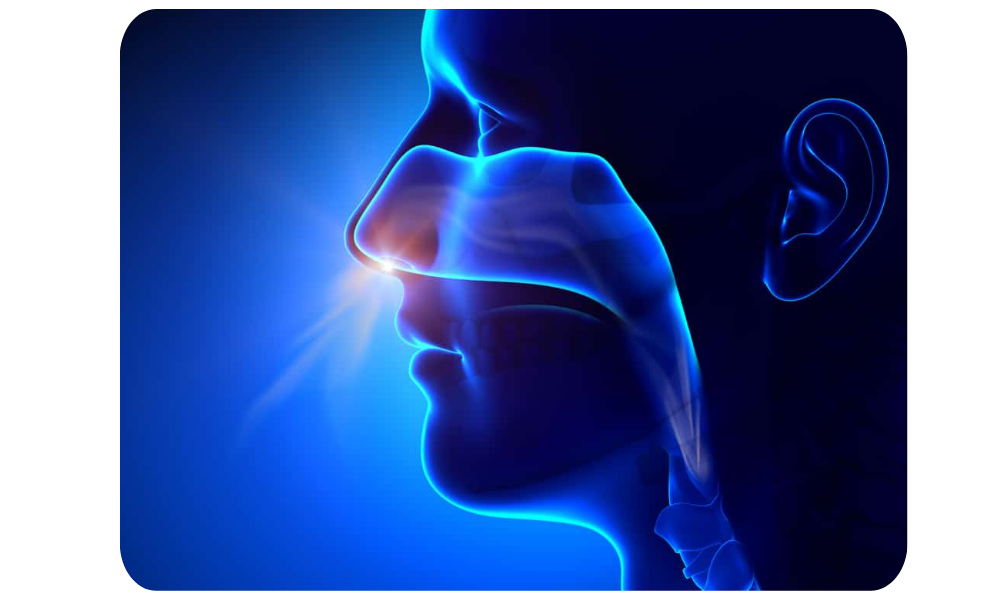Ever since reading the book Breath by James Nestor, I’ve become so interested—okay, maybe a bit obsessed—with breathing. If you haven’t read the book yet, I highly recommend it. It’s a fascinating deep dive into something so simple yet so powerful: the way we breathe.
One of the most intriguing things Nestor discusses is the impact of nasal breathing on our overall health. For example, did you know that breathing through your nose can actually benefit your kidneys and help with nocturia (waking up at night to urinate)? It sounds almost unbelievable, but it’s rooted in how nasal breathing helps regulate carbon dioxide levels, supports oxygen delivery, and even impacts how your kidneys process fluids. This connection is just one example of how seemingly unrelated systems in our body are deeply intertwined.
Isn’t that fascinating? I love how the body is connected in so many ways. Just when you thought your pelvic floor therapist was going to hand you a list of Kegels, here I am, recommending you breathe through your nose!
Lets dive in deeper on the surprising advantages of breathing through your nose, from bolstering immunity to enhancing brain health and overall well-being.
The Fundamentals of Breathing
We often take breathing for granted, yet the way we breathe—through the nose or the mouth—can have a major impact on our health. Our noses are uniquely designed for optimal breathing, offering numerous physiological advantages.
“The nose is not just an air passage; it’s a sophisticated filter and humidifier,” explains Stuart Sandeman, breathing expert and founder of Breathpod. Despite this, factors like congestion, stress, and habits often lead people to default to mouth breathing, which can compromise their health over time. Relearning how to breathe nasally restores your body’s natural mechanisms and supports overall wellness.
1. Natural Defense Against Illness
Your nose acts as a frontline defense system, filtering out airborne particles, bacteria, and viruses. Tiny nasal hairs and mucus trap contaminants before they can enter your lungs, reducing the risk of respiratory infections.
Research published in the *Journal of Toxicology and Environmental Health* emphasizes the superior filtration capabilities of the nasal passages, noting their efficiency in blocking fine pollutants. Neuroscientist Andrew Huberman highlights the importance of maintaining a healthy nasal microbiome to fend off colds and flu, explaining that nasal breathing creates the ideal environment for beneficial bacteria to thrive.
Additionally, nasal breathing warms and humidifies the air you inhale, which is especially crucial in dry or cold climates. This process protects your respiratory tract from irritation and infections.
2. Improved Oxygen Efficiency
Nasal breathing enhances oxygen uptake by increasing nitric oxide production in the nasal passages. Nitric oxide improves blood flow and oxygen delivery to vital organs, optimizing your body’s efficiency. Studies show that nasal breathing can elevate blood oxygen levels by up to 10% compared to mouth breathing.
By creating natural resistance to airflow, nasal breathing also encourages slower, deeper breaths. This controlled breathing pattern helps maintain a balanced oxygen-to-carbon-dioxide ratio, supporting cardiovascular health and physical endurance.
3. Enhanced Oral Health
Breathing through your mouth can dry out saliva, creating an environment where harmful bacteria thrive. This can lead to tooth decay, gum disease, and bad breath. Conversely, nasal breathing keeps the mouth hydrated, allowing saliva to protect against bacterial buildup.
Dental experts also point out that nasal breathing plays a role in jaw development and alignment, particularly in children. Encouraging nasal breathing early on can prevent issues such as abnormal jaw growth and misaligned teeth. (Which can in turn prevent TMJ dysfunction from developing!)
4. Better Sleep Quality
Switching to nasal breathing can dramatically improve your sleep. Mouth breathing often causes dryness and can contribute to snoring and sleep apnea. Nasal breathing, on the other hand, promotes a steady oxygen supply and stable breathing patterns, leading to deeper, more restorative rest.
Dr. Andrew Huberman stresses that mouth breathing during sleep can be dangerous, as it’s associated with conditions like sleep apnea. Training yourself to breathe through your nose—even during sleep—can mitigate these risks and enhance overall sleep quality.
5. Stress Reduction
Nasal breathing activates the parasympathetic nervous system, which is responsible for promoting relaxation and recovery. The slower, controlled breaths associated with nasal breathing naturally lower stress levels and calm the mind.
Research published in *Scientific Reports* confirms that nasal breathwork can significantly reduce anxiety and depression. Techniques like alternate nostril breathing or slow nasal breathing, often used in yoga, have been shown to foster emotional well-being and mental clarity.
6. Brain Function Boost
The benefits of nasal breathing extend to cognitive health. Proper oxygen exchange, facilitated by nasal breathing, supports memory, focus, and concentration. Imaging studies reveal that nasal breathing activates brain regions associated with higher cognitive functions more effectively than mouth breathing.
7. Positive Impact on Facial Structure
For children, nasal breathing is crucial for healthy facial development. Habitual mouth breathing can lead to changes in facial structure, such as a narrowed jaw and receding chin. Encouraging nasal breathing from a young age supports balanced growth and can even improve facial aesthetics. (⭐ check out our video for more about this here ⭐)
Practical Tips for Transitioning to Nasal Breathing
Making the switch to nasal breathing requires conscious effort, especially for those accustomed to mouth breathing. Here are some strategies to help:
– Try Mouth Taping: Use gentle, breathable tape to keep your mouth closed during sleep. Begin by taping for short periods during the day to build comfort. We recommend Myotape.
– Practice Breathing Exercises: Incorporate techniques like alternate nostril breathing or diaphragmatic breathing into your routine to strengthen nasal breathing habits.
– Manage Allergies: Address nasal congestion caused by allergies or sinus issues with appropriate treatments, such as saline sprays or antihistamines.
– Stay Mindful: Regularly check your breathing pattern throughout the day and consciously switch to nasal breathing if needed.
– Strengthen Your Jaw and Tongue: Exercises like pressing your tongue against the roof of your mouth can help maintain an open airway and support nasal breathing.
When Mouth Breathing Is Necessary
While nasal breathing is ideal, there are situations where mouth breathing is unavoidable—such as during intense exercise or certain medical conditions. Understanding the circumstances under which mouth breathing is necessary helps maintain a balanced perspective.
Stuart Sandeman who is a renowned breathwork coach, author, and the founder of Breathpod, explains, mouth breathing can be a lifesaver in moments of sudden danger, such as reacting quickly to avoid an accident. The key is to prioritize nasal breathing whenever possible to reap its numerous health benefits.
By adopting nasal breathing as your default mode, you can unlock a host of physical, mental, and emotional benefits. Embrace this simple yet powerful change to optimize your health and well-being.
Recommended reading: Breath by James Nesto




